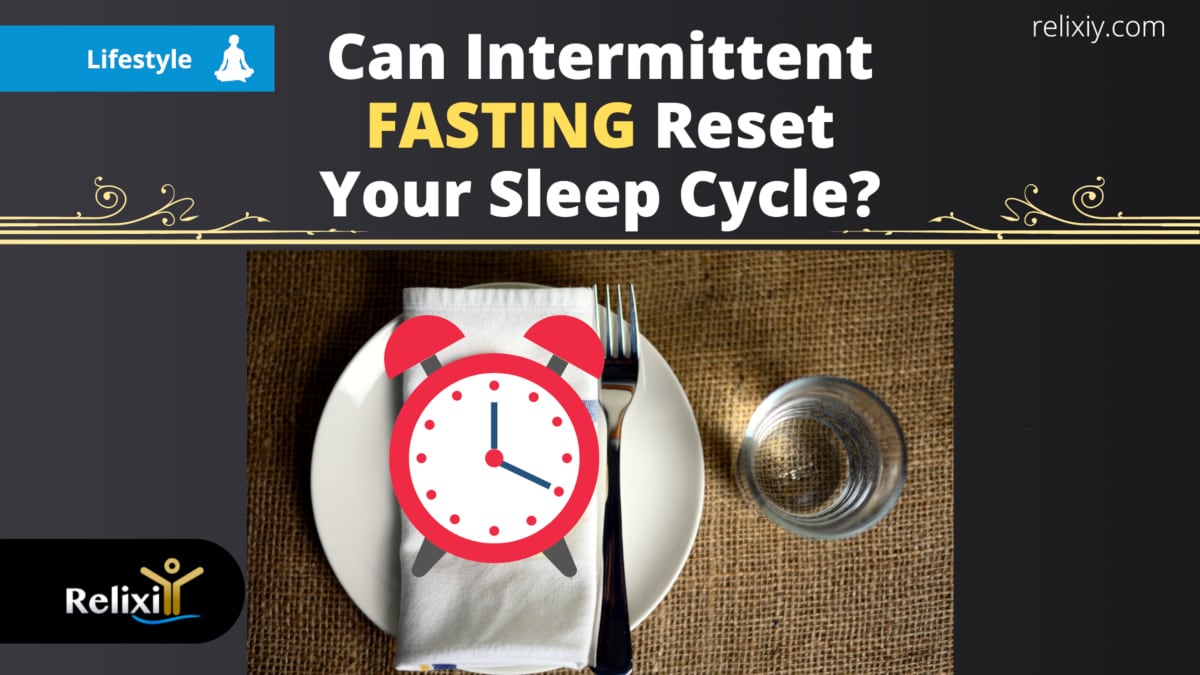Intermittent fasting is a type of eating that alternates between fasting and eating intervals. It doesn’t tell you which meals or food to eat, but rather when you should eat. It’s not a diet in the traditional sense, but more correctly described as an eating pattern. Intermittent fasting can help to reset your sleep cycle (circadian rhythm).
Intermittent Fasting Methods:
Intermittent fasting can be done in a variety of ways, but they all entail dividing the day or week into eating and fasting times. You eat extremely little or nothing at all during fasting times.
These are the most popular methods:
- The 16/8 method: The Lean Gains Protocol, also known as the Breakfast Deprivation Protocol, entails foregoing breakfast and limiting your daily eating period. For example from 1 to 9 p.m. Following that, you must fast for 16 hours.
- Eat-Stop-Eat: This entails fasting for 24 hours once or twice a week, such as not eating from supper one day to dinner the following.
- Diet 5:2: Using this strategy, you consume only 500 to 600 calories on two non-consecutive days of a week, but still eat normally on the other five days.
As long as you don’t compensate by eating a lot more during the eating intervals, all of these ways should help you lose weight by limiting your calorie consumption. Many individuals find the 16/8 technique to be the most straightforward, long-term, and simple to follow. It’s also the most frequently used.
Understanding how intermittent fasting improves the quality of your sleep:
Intermittent fasting may improve the quality of your sleep by reinforcing your circadian cycles, according to research. Circadian rhythms control a variety of biological systems, including appetite, metabolism, and sleep-wake cycles. The circadian rhythm, or sleep/wake cycle, processes the homeostatic physiology of sleep regulation. The 24-hour inner check in our cerebrum that controls patterns of sharpness and drowsiness by reacting to light varieties in our environmental factors is known as the circadian cadence. The rotation of the Earth around its axis has an impact on our physiology and behavior. This circadian rhythm was developed to help people in acclimating to changes in their current circumstances and expecting varieties in radiation, temperature, and food supply Following a set meal schedule, such as when fasting, can assist in reinforcing your natural circadian rhythms.
Practice healthy sleep:
- Intermittent fasting practitioners have higher amounts of human growth hormone. This hormone, which is produced during sleep, burns fat, repairs muscles, and aids in cellular regeneration. As a result, people who fast may feel more refreshed and rejuvenated when they wake up, and people who fast intermittently may notice that they have greater energy and attention.
- Fasting boosts orexin-A synthesis, a neurotransmitter linked to alertness. Fasters had lower orexin-A levels at night and greater levels during the day, making them feel more awake during the day and sleeping more comfortably.
What are the effects of intermittent fasting?
Intermittent fasting has been shown to improve sleep in as little as one week. After a week of intermittent fasting, participants in one research of healthy individuals reported that their sleep quality improved on multiple levels. They were less likely to wake up during the night and moved less while sleeping, resulting in a more restful night’s sleep. They also slept for longer periods in rapid eye movement (REM) sleep, which is associated with emotional and mental processing. Overall, they reported greater sleep quality, improved mood, and increased daytime attention.
Relationship between insomnia and Intermittent Fasting:
While intermittent fasting appears to increase sleep quality, depending on how your meals are timed, it can also cause sleep problems. People’s sleep can be disrupted when they eat at odd hours. Substantial suppers eaten too early around evening time might agitate your stomach and make it hard to nod off, bringing about helpless rest quality and an absence of energy when you awaken.
Tips for Better Sleep While Intermittent Fasting:
Maintaining a regular eating pattern may help to improve the quality of your sleep. While fasting, consolidating a couple of sound rest practices might help you rest surprisingly better.
- Don’t Head to sleep Hungry-It very well might be harder to nod off if your stomach is protesting. At the point when you’re eager, your cortisol (a pressure chemical) levels rise, which may disturb your rest. Plan your last dinner to be something like three hours before bedtime14. Thusly, your absorption will not keep you up around evening time, yet you will not hit the hay hungry by the same token
- Stay Hydrated- Being dehydrated before bed can result in a shorter or poorer quality of sleep. Drinking extra water during the day may help you sleep better at night by reducing your hunger cravings.
- Limit your use of caffeine and liquor. Caffeine might stifle your hunger, yet it additionally meddles with your rest. As well as disturbing rest, liquor inconveniently affects your digestion and causes dietary shortages.
- Choose Good Food sources: Keep away from food sources that are high in sugar and void calories, for example, shoddy nourishment. You’ll see it easier to adhere to your irregular fasting plan in the event that you eat energizing, supplement thick food varieties. Pick whole dinners, organic products, and vegetables, just as lean proteins and sound fats. Moreover, things that are valuable for your eating routine are likewise useful for your rest.
- Use an anti anxiety blanket. Those special blankets are perfect to improve relaxation and melt away stress and anxiety. Studies demonstrate that a weighted blanket of about 10% of your body weight stimulates a better and deeper sleep, making it a perfect item to couple with your intermittent fasting routine. Your body deserves the best possible sleep and a weighted duvet can definitively help.
- Figure Out What Works for You– Intermittent fasting takes a few days to acclimatize to, just like any other change in routine. As you set out a timetable that works for you, give yourself some flexibility. you will realize that fasting for eight hours is less complicated than fasting for twelve, otherwise, you could value more highly cut back your caloric intake on some days of the week
You might think that it is simpler to rest on an ordinary timetable on the off chance that you eat on a normal timetable. Prior to beginning a fasting routine, talk with your GP, particularly in case you’re pregnant or have a medical issue. Some people can be benefited, but not all. you can only find out which group you belong to by trying it out. Fasting can be a very strong strategy for losing weight and improving your health if you enjoy it and find it to be a sustainable way of eating.





